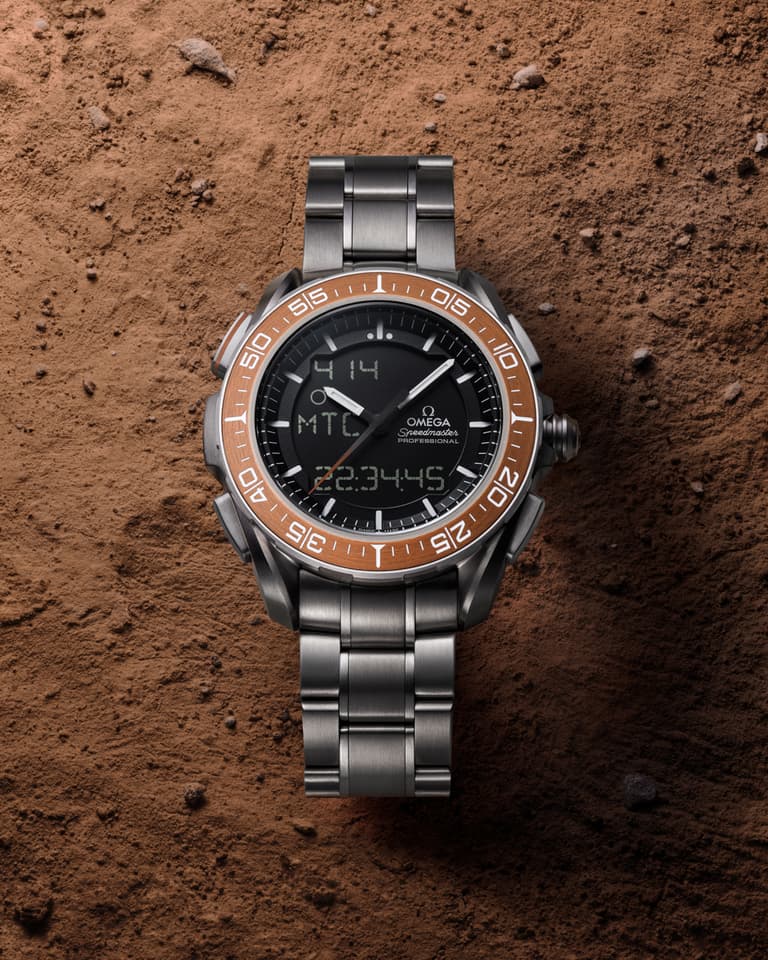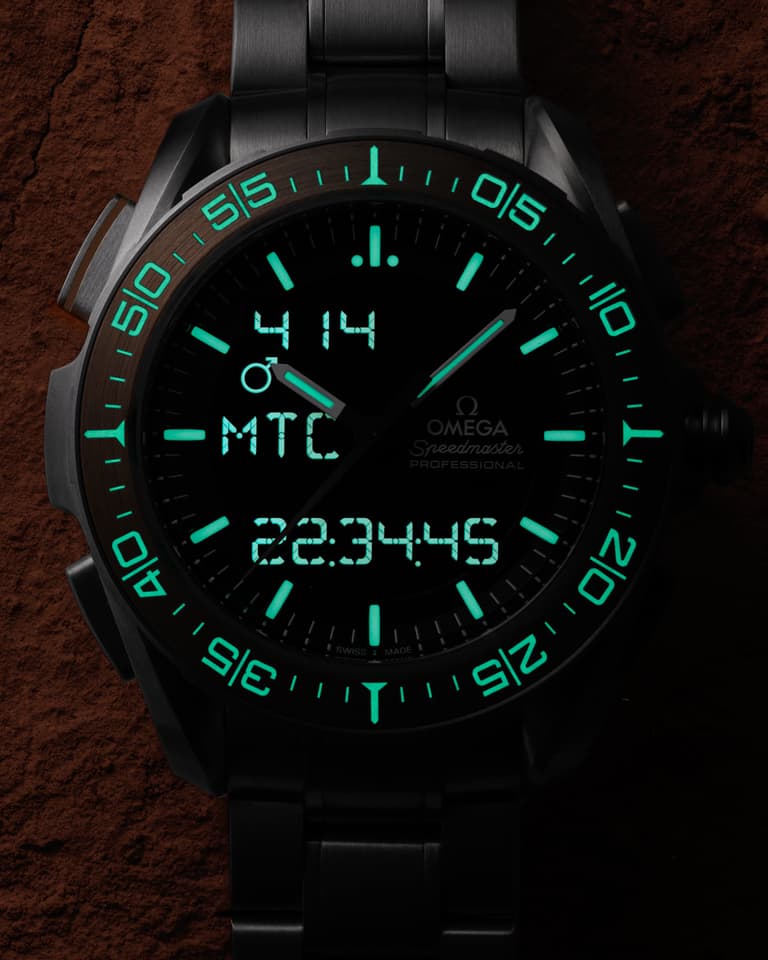No astronaut has set foot on Mars (yet), but that hasn’t stopped Omega, in partnership with the European Space Agency (ESA), from developing the Speedmaster X-33 Marstimer, an analog/digital quartz wristwatch that can track time on the Red Planet as well as on Earth.
When the first explorers set foot on Mars, they’re going to be faced with the aggravating fact that the Martian day, called a “sol,” is not quite the same from a terrestrial point of view. On Earth, a solar day is 24 hours long and our watches are designed to reflect this. If a watch has a perpetual calendar function, it has to map against an Earth year’s length of 365.25 days. However, a Martian sol is 24 hours, 39 minutes and 35.244 seconds, and the year is 668.599 sols long.
Needless to say, an Earth watch would soon go out of sync. It’s a problem that’s not entirely a thing of the future because scientists and engineers oversee robotic landers and rovers on Mars in Martian time, so a Martian watch would have an admittedly small niche market even on Earth today.
Based on the successful Speedmaster X-33 design, the X-33 Marstimer uses Omega’s 5622 thermo‑compensated quartz movement that operates the analog and digital readouts and boasts a power-saving mode that shuts off the digital displays and locks the hands at the 12 o’clock position while continuing to keep time and run other functions in the background. This also acts as a standby mode that activates if the watch doesn’t move for five days.

Omega
As part of its repertoire, the Marstimer tracks Coordinated Universal Time (UTC) on Earth as well as two Earth time zones. It can also track Mission Elapsed Time (MET) and has three Phased Elapsed Times to track specific events in the MET in either Earth or Mars time. These timers can be made to work together to plan out a trip itinerary or for a mission to the Martian dead sea bottom. It also has a 100-hour chronograph function, a timer, and a perpetual calendar that takes into account Martian leap years as well as the terrestrial variety.
In Martian mode, the watch tracks Martian Coordinated Time (MTC), which is the time zone on the Martian prime meridian, as well as two other Martian time zones, and it has three alarms that can be set for either planet. It can even calculate True Solar Time for any location on Earth or Mars, which means that the watch can act as a solar compass that can find true north on either world.

Omega
One neat little trick is that if the hands are obscuring a digital readout on the black dial, the press of a button moves them conveniently out of the way for a moment.
The mechanism is sealed in a 45-mm titanium case that is water-resistant to three bars (30 m, 100 ft) with a matching titanium bracelet and fold-over clasp that can be easily swapped out using a bespoke tool for an included NATO strap. Around the anti-reflective sapphire crystal there’s a rotating oxalic anodized aluminum bezel ring in red hematite color reminiscent of the Martian sands that carries over to the seconds hand.

Omega
“Anyone interested in space, or even science fiction, is obsessed with Mars,” says Omega President and CEO Mr. Raynald Aeschlimann. “It has generated so much curiosity, so many incredible stories. We have even created a name for its imaginary inhabitants. It’s so close yet so far. We long to walk across its surface. To be here on Earth and able to track its movements, gives the term timepiece a whole new meaning. I’m thrilled with this new addition to the famous Speedmaster family.”
The Omega Speedmaster X-33 Marstimer will set you back US$6,400.00.
The video below introduces the Marstimer.
Marstimer
Source: Omega
Source of Article